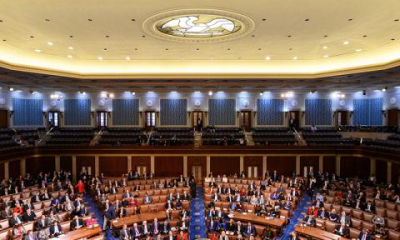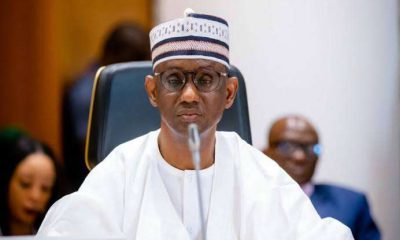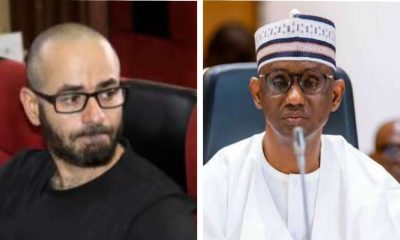Nation
Sit-at-home orders losing grip in South-East, says NSA Ribadu

National Security Adviser (NSA) Nuhu Ribadu has declared that the sit-at-home orders once ruthlessly enforced by armed separatist groups in Nigeria’s South-East region are rapidly losing their grip, as federal security operations continue to gain ground in restoring order across the country.
Ribadu made this known on Thursday during a presentation at the All Progressives Congress (APC) National Policy and Development Summit in Abuja. His address focused on the security milestones of President Bola Tinubu’s administration since assuming office in May 2023.
According to Ribadu, the Tinubu-led government inherited five major security flashpoints: the Boko Haram insurgency in the North-East, armed banditry and terrorism in the North-West, secessionist threats by the Indigenous People of Biafra (IPOB) and its militant wing, the Eastern Security Network (ESN), in the South-East; youth-led unrest and pipeline vandalism in the Niger Delta; and persistent farmer-herder and communal clashes in the North-Central.
“In each of these zones, we have made measurable progress. In the South-East, for example, the era of sit-at-home orders paralyzing the region every Monday is coming to an end,” Ribadu said. “Key IPOB and ESN commanders have been captured or eliminated. Their operational capacity has been severely degraded.”
He noted that the impact of separatist agitation in the South-East has significantly waned, citing the reduction in attacks on security personnel, the reopening of dozens of previously closed police formations, and the resumption of normal social and economic activities across Enugu, Imo, Abia, Anambra, and Ebonyi States.
“In the past, public fear was palpable, and markets, schools, and banks would shut down out of fear of reprisal attacks. That situation has changed. We are now witnessing a steady return to normalcy,” Ribadu stated.
The NSA also highlighted achievements in other conflict-prone zones, particularly the North-East, where Boko Haram insurgency once dominated vast territories. He disclosed that over the past two years, more than 13,500 Boko Haram insurgents have been neutralised, while more than 11,000 illegal weapons have been seized and destroyed.
Perhaps most significantly, he revealed that 124,408 fighters from Boko Haram and its rival splinter group, Islamic State West Africa Province (ISWAP), along with their family members, have surrendered to Nigerian forces since the Tinubu administration began its counterinsurgency campaigns.
“Our forces continue to dominate key conflict zones like the Timbuktu Triangle and Tumbu Islands. Operations are ongoing to dislodge the last remnants of terrorist strongholds,” Ribadu said.
He also cited a turning point in the fight against armed banditry in the North-West. “This past year has been a watershed moment. Our forces have rescued over 11,250 kidnap victims. We have decimated major bandit enclaves and neutralised notorious kingpins, including Ali Kachalla, Boderi, Halilu Sububu, Dangote, Isuhu Yellow, and Damuna.”
Ribadu said the government is moving beyond mere military action, adopting a more holistic approach that includes community engagement, intelligence-led operations, and regional cooperation with neighbouring countries to cut off arms supply routes and escape corridors.
The NSA acknowledged that while challenges remain, the trajectory is promising. “We are not declaring total victory yet. But Nigerians can now feel the difference. We are moving from fear to confidence, from paralysis to progress. President Tinubu’s administration is committed to securing every inch of this country,” he said.
The APC summit, which brought together policymakers, security experts, and development stakeholders, is part of the ruling party’s broader effort to evaluate its policy performance and strategise for future reforms. Ribadu’s presentation was widely seen as a reaffirmation of the government’s resolve to restore national security and cohesion.










